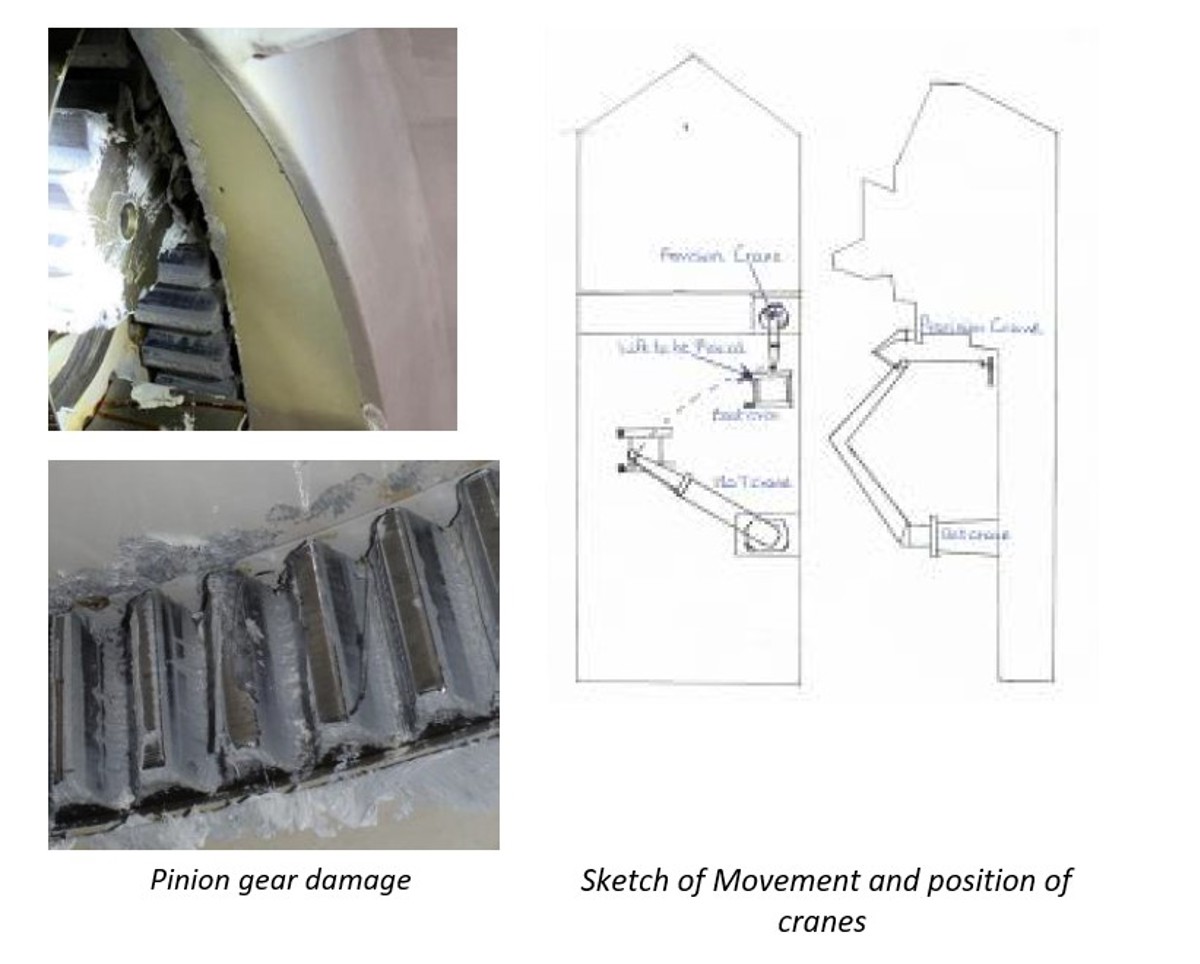Provisions crane damaged by main deck crane
- Safety Flash
- Published on 4 September 2020
- Generated on 3 July 2025
- IMCA SF 26/20
- 2 minute read
Jump to:
What happened?
During vessel mobilisation the boat cradle had to be shifted from centre of the main deck towards the starboard side closer to the accommodation.
The main crane was used for this lift and the provisions crane was parked in standby facing aft.
While slewing the main crane to starboard, the main crane jib crane came into contact with the jib on the provisions crane.
The provisions crane was inspected after impact and mechanical damage was found on the slewing gear and pinion gear.

What were the causes? What went wrong?
- The provisions crane was in the blind spot of the main crane operator cabin.
- The banksman was focusing on the lift and not the position of the provisions crane.
- The provisions crane had been left parked facing aft in standby.
- The person who had most recently operated the provisions crane had not been part of the mobilisation plan toolbox talk.
Actions
- All crew and mobilisation team to be included in the mobilisation plan toolbox talk.
- A procedure would be implemented for parking the provisions crane.
- An emphasis would be placed on communication and awareness for the crane operator and banksman as well as the mobilisation team.
IMCA Safety Flashes summarise key safety matters and incidents, allowing lessons to be more easily learnt for the benefit of the entire offshore industry.
The effectiveness of the IMCA Safety Flash system depends on the industry sharing information and so avoiding repeat incidents. Incidents are classified according to IOGP's Life Saving Rules.
All information is anonymised or sanitised, as appropriate, and warnings for graphic content included where possible.
IMCA makes every effort to ensure both the accuracy and reliability of the information shared, but is not be liable for any guidance and/or recommendation and/or statement herein contained.
The information contained in this document does not fulfil or replace any individual's or Member's legal, regulatory or other duties or obligations in respect of their operations. Individuals and Members remain solely responsible for the safe, lawful and proper conduct of their operations.
Share your safety incidents with IMCA online. Sign-up to receive Safety Flashes straight to your email.